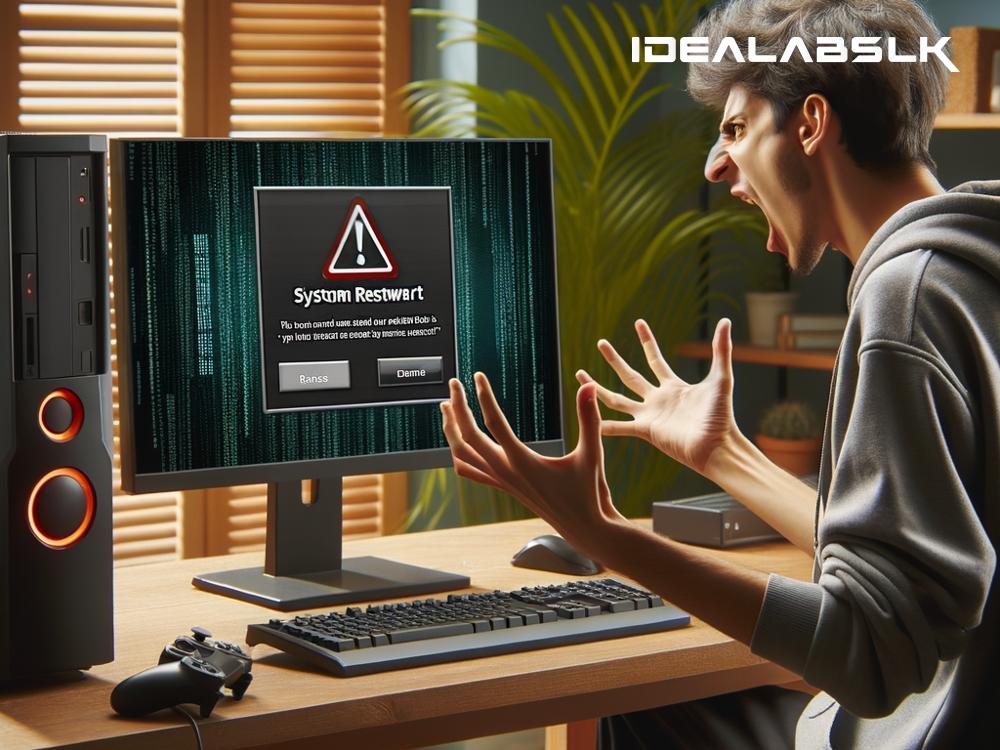How to Solve 'Computer Restarts When Playing Games': A Step-by-Step Guide
Experiencing your computer restarting in the middle of an intense game can be extremely frustrating. It’s like being at the climax of a suspenseful movie, and suddenly, the screen goes black. But don’t worry! This problem is more common than you think and can often be solved with a few troubleshooting steps. Here’s a simple guide on how to keep your gaming sessions uninterrupted by unexpected restarts.
1. Check for Overheating
One of the most common reasons a computer restarts while gaming is overheating. High-intensity games push your CPU and GPU to work harder, generating more heat. If the temperature gets too high, your computer might restart to prevent damage.
What to do:
- Monitor Temperatures: Use software like HWMonitor or SpeedFan to keep an eye on your system’s temperatures.
- Clean Your Computer: Dust buildup can hinder cooling. Open your PC case and gently clean dust from the fans and components with compressed air.
- Improve Airflow: Ensure your computer’s vents are not blocked, and consider adding more fans or upgrading to a high-quality cooling system.
2. Update Your Drivers
Outdated graphics drivers can cause all sorts of glitches in games, including causing your computer to restart. Drivers are the software that lets your operating system and other software interact with your hardware, so keeping them updated is crucial for smooth performance.
What to do:
- Visit the website of your graphics card manufacturer (NVIDIA, AMD, Intel) and download the latest drivers.
- Alternatively, use driver update software to automatically find and install the latest drivers for your system.
3. Check Your Power Supply
An inadequate or failing power supply unit (PSU) might not be able to keep up with the demands of your gaming, causing your system to restart. This is especially true if you've added new components that draw more power.
What to do:
- Assess Your Power Needs: Use an online PSU calculator to ensure your PSU has enough wattage for your components.
- Inspect for Damage: Check the PSU for any signs of damage or wear. If you suspect it's not working correctly, consider replacing it with a more powerful and reliable model.
4. Run a Memory Check
Faulty RAM can also be the culprit behind computer restarts. When your system runs out of the physical memory required by a game, it can crash or restart.
What to do:
- Use Windows Memory Diagnostic tool or MemTest86 to check for memory errors.
- If errors are found, try reseating your RAM sticks or replacing them if necessary.
5. Lower Your Game Settings
Sometimes, the solution can be as simple as lowering your game settings. Running games on high settings can overstress your components, leading to crashes or restarts.
What to do:
- Go to the graphics settings in your game and reduce the resolution, texture quality, shadows, and other demanding options.
- Consider playing in windowed mode instead of full screen, as this can sometimes be more stable.
6. Check for Malware
Malware or viruses can also cause system instability, leading to restarts. This is less common but worth checking, especially if you’ve noticed other odd behaviors with your computer.
What to do:
- Run a full system scan with a reputable antivirus program.
- Remove any detected threats and restart your computer to see if the problem persists.
7. Update Your BIOS/UEFI
An outdated BIOS/UEFI firmware can sometimes cause compatibility issues with newer hardware and software, leading to restarts.
What to do:
- Visit your motherboard manufacturer’s website and download the latest BIOS/UEFI version.
- Follow their instructions carefully to update, keeping in mind that incorrectly updating your BIOS/UEFI can harm your system.
Wrapping Up
Solving the problem of your computer restarting during games can feel like solving a complex puzzle. But by methodically working through these steps, you can identify and fix the issue, often without needing professional help. Remember, the key is patience and a little bit of detective work. Happy gaming, and may your sessions be long and uninterrupted!

